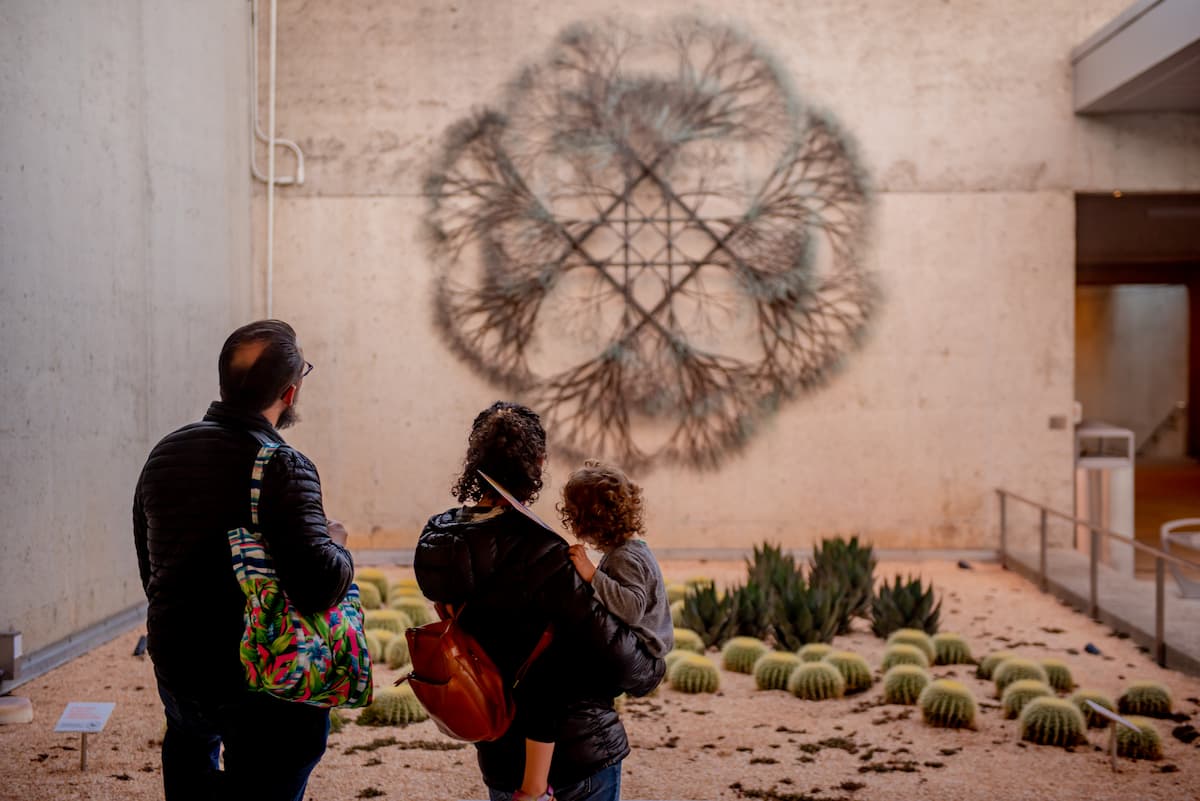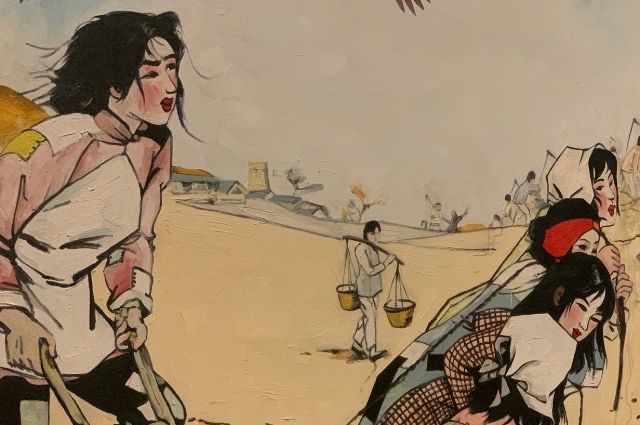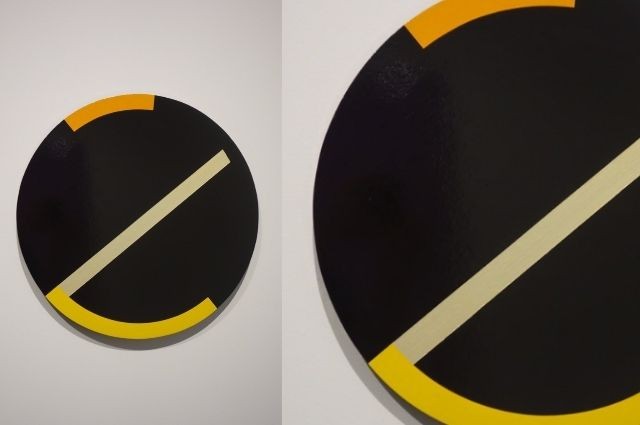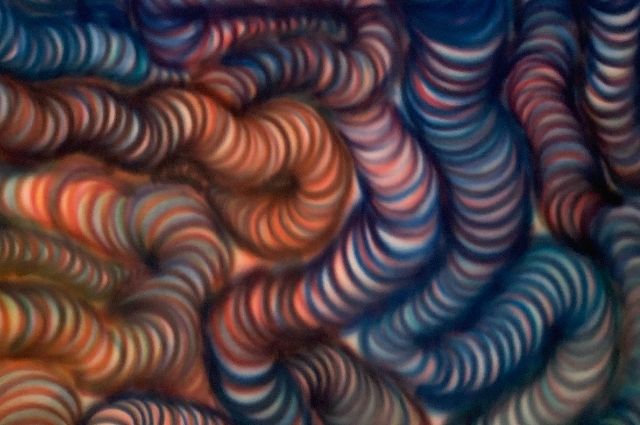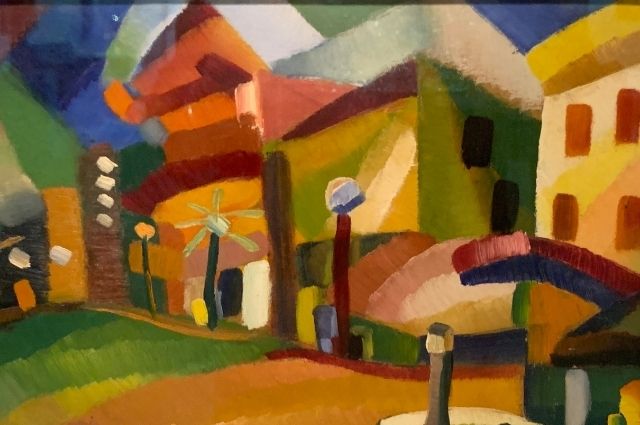Helen Nestor: A Life in Focus, A World in Transition
Born in San Mateo, California, on March 8, 1924, Nestor’s journey into photography was shaped by but certainly not precluded by her Polio diagnosis in 1951. With the support of her husband and an unwavering drive to tell stories, she took up photography in the early 1960s—developing her first prints in a bathroom-turned-darkroom in her Berkeley home. What began as a personal outlet soon blossomed into a prolific career that would make her a vital witness to some of the most pivotal social changes of her time.
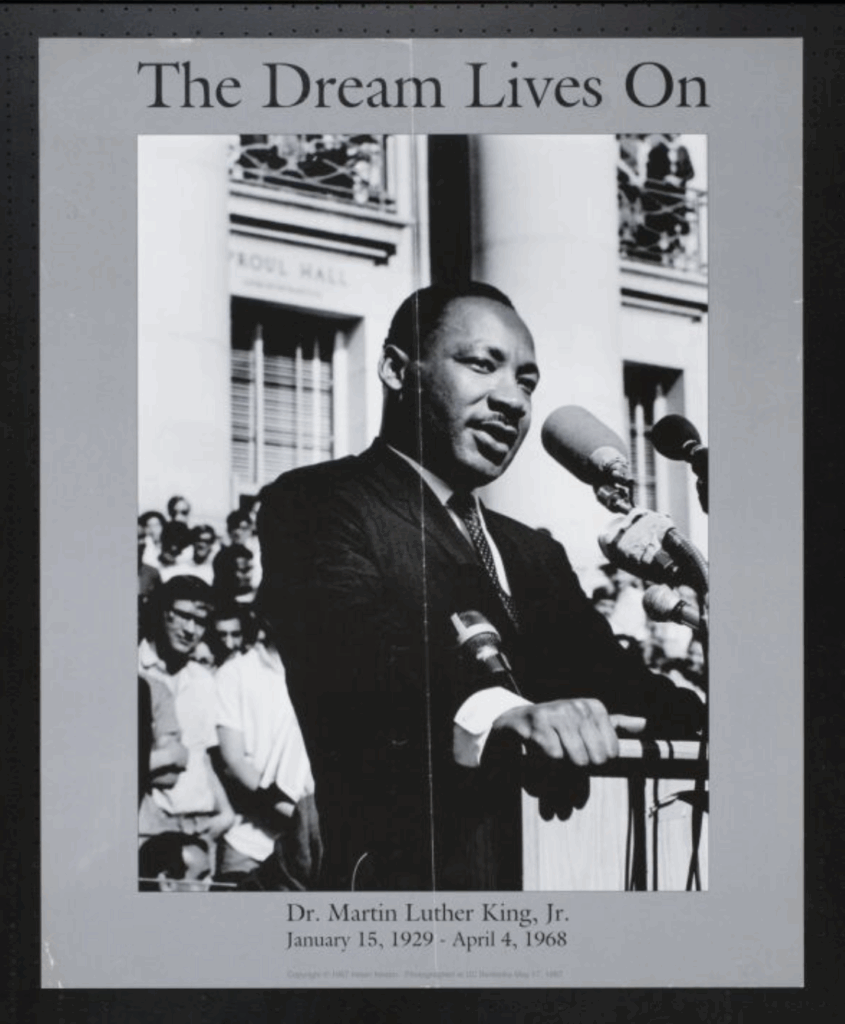
Helen Nestor, The Dream Lives On, ca. 1968. Poster; work on paper. Collection of the Oakland Museum of California. Gift of the artist.
Nestor studied photography with some of the greats—Dorothea Lange, Ansel Adams, and Minor White—honing a practice rooted in both technical precision and emotional depth. Her camera became a tool for truth-telling, chronicling everything from the Free Speech Movement at UC Berkeley to protests against the Vietnam War, the rise of the Black Panthers, and the early days of Cesar Chavez’s organizing work. Her black-and-white prints, rich with tonal nuance, captured not only events but also the humanity within them. These were not just photographs—they were documents of resistance, empathy, and profound social awareness.
Her work appeared in publications such as Ramparts magazine and in monographs like The Trouble in Berkeley (1965), Equal Start (1968), and On the Go (1968). In the 1970s, Nestor turned her lens inward, exploring evolving family structures in her groundbreaking series Non-Traditional American Families, which featured same-sex couples, multiracial households, disabled parents, and communal living arrangements. Later revisiting many of these subjects for her 1992 book Family Portraits in Changing Times, she offered a powerful visual counter-narrative to conventional definitions of family, emphasizing love, resilience, and authenticity.
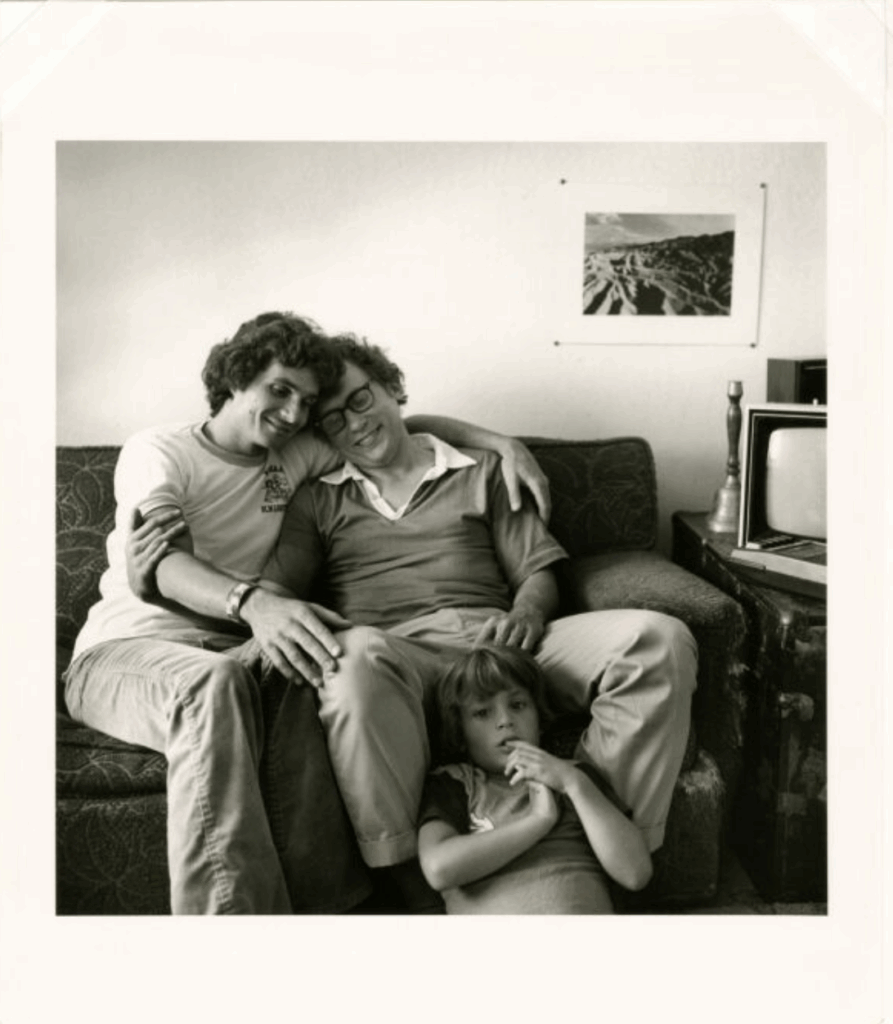
Helen Nestor, Tony and Alan are Rearing Tony’s Son, Jon, 1977. Gelatin silver print, Collection of the Oakland Museum of California. Gift of the artist. © Estate of Helen Nestor
Nestor’s activism extended to documenting the lives and labor of disabled women and artists, an area of particular significance given her own experience with disability. Even as post-polio syndrome eventually curtailed her photography practice, she devoted herself to a decade-long genealogy project, tracing her family’s Jewish roots in San Francisco and building an archive that spanned generations.
In 2000, the Oakland Museum of California honored her with a solo exhibition, Helen Nestor: Personal and Political, and her extensive archive—over 2,000 prints and 20,000 negatives—is now preserved in OMCA’s collection. A selection of her powerful images from the Free Speech Movement and other key moments can be explored online through the Museum’s collections portal. Her work remains a centerpiece in the Gallery of California Art, where visitors are invited to explore how art and activism intertwine.
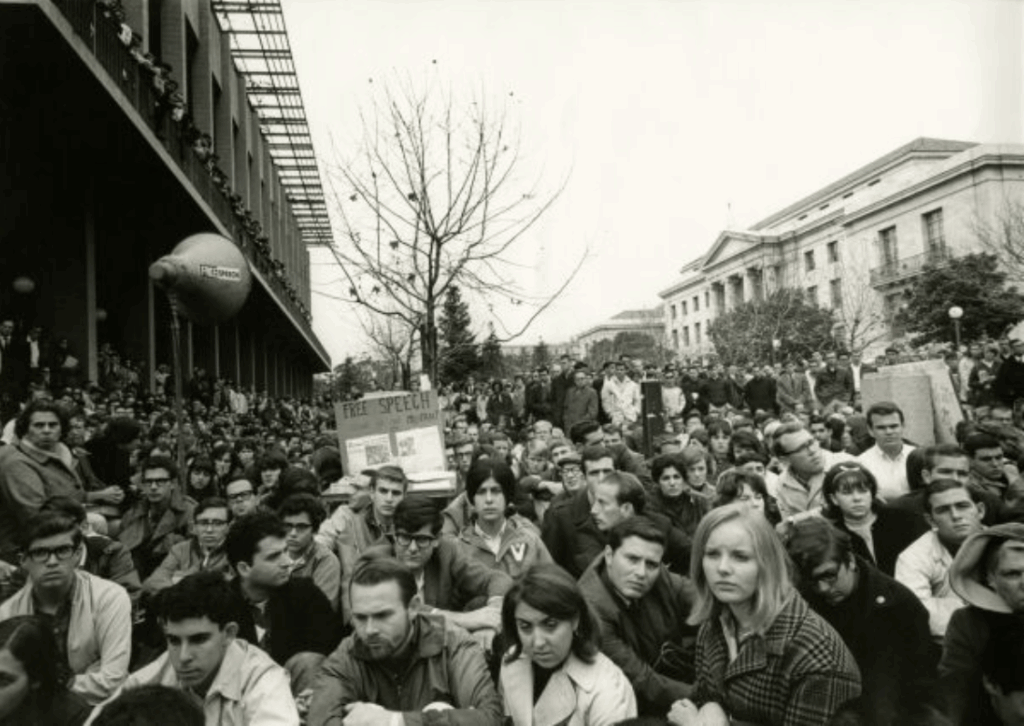
Helen Nestor, Untitled (Free Speech Movement, Sproul Plaza, U.C. Berkeley), 1964. Gelatin silver print, Collection of the Oakland Museum of California. Gift of the artist.
Helen Nestor passed away peacefully on May 21, 2008, in her Berkeley home at the age of 84. Today, her photographs remain as relevant as ever, bearing witness to the courage, complexity, and dignity of those she so carefully portrayed. Her legacy endures not only in the images she created but in the communities she documented, celebrated, and uplifted through her lens.
